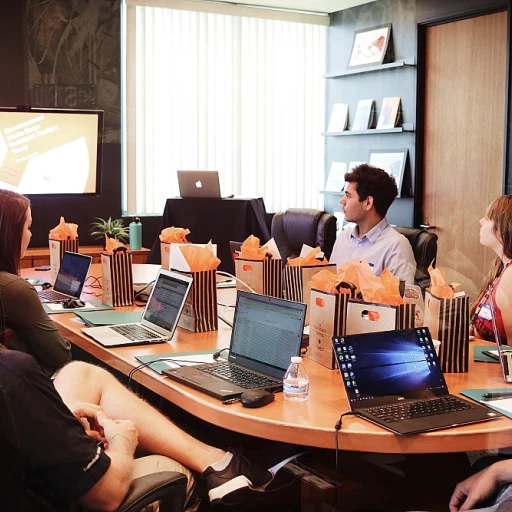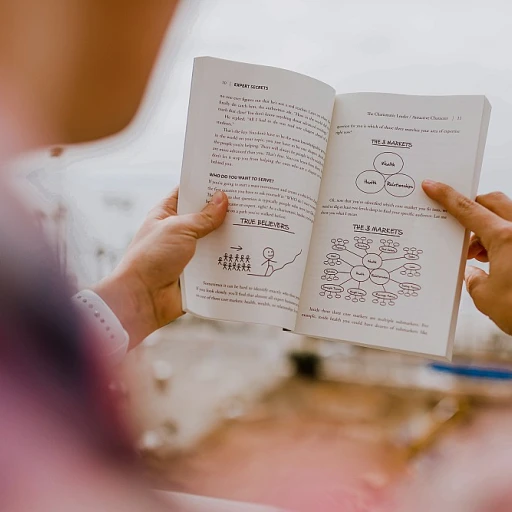
Understanding Intangible Skills
Unveiling the Essence of Intangible Assets
In today's dynamic work environment, intangible skills have emerged as the unsung heroes propelling individuals in their career journey. Characterized by their elusive nature, these skills don't neatly fit into bullet points on a resume. Yet, their influence profoundly impacts work outcomes and defines the professional growth trajectories of high potential employees.
While hard skills lay the foundation for a candidate's ability to perform specific tasks, soft skills like communication, problem solving, and emotional intelligence can be the differentiating factors that elevate them to leadership roles. These intangible qualities foster an individual's ability to navigate complex work situations effectively.
Critical thinking and strategic thinking illustrate the necessity of incorporating intangible skills into a well-rounded skill set. They empower employees not just in their daily tasks but also as they ascend the ranks in complex organizational structures.
Hiring managers are increasingly prioritizing these less tangible assets during their job search and interview processes. Employers seek candidates capable of conflict resolution, managing their emotions well, and demonstrating a strong work ethic as essential attributes that can steer a team towards success.
For more insights into recognizing these valuable indicators of emerging talent, consider exploring the key indicators of emerging talent and how they can inform your job advancement strategies.
Identifying Key Intangible Skills
Unearthing the Core of Intangible Skills
In today's competitive job market, understanding intangible skills is a vital aspect for both candidates and employers. These skills, though not easily measurable like hard skills, play a crucial role in shaping a professional's ability to succeed in various roles. Intangible skills, often referred to as soft skills, encompass a variety of abilities such as communication and emotional intelligence, which are pivotal in any job search.
Identifying key intangible qualities is essential when assessing potential employees. Here are some of the critical skill sets to consider:
- Communication Skills: The ability to convey ideas effectively is crucial in both team settings and individual interactions. It involves active listening and clarity in expression, ensuring messages are understood and well-received.
- Problem Solving and Critical Thinking: These skills enable professionals to tackle challenges with strategic thinking and innovation. Employees who excel in these areas can assess situations, identify solutions, and execute plans efficiently.
- Emotional Intelligence: The capability to manage one's emotions well and empathize with others is vital in fostering a positive work environment and resolving conflicts.
- Leadership and Conflict Resolution: Strong leadership skills are marked by the ability to guide and inspire teams, while conflict resolution involves pacifying disputes and finding amicable solutions.
- Time Management and Work Ethic: Managing tasks effectively within set deadlines and maintaining a strong work ethic reflects reliability and dedication.
The ability to harness these intangible skills reshapes one's professional trajectory, enhancing their resumes and cover letters while preparing them for interviews. By recognizing and prioritizing these attributes, employers can identify candidates who not only possess the necessary job-specific skills but also bring invaluable intangible qualities to the workplace.
The Role of Intangible Skills in Career Advancement
The Pivotal Role of Intangible Skills in Professional Growth
The significant impact of intangible skills on an individual's career advancement cannot be overstated. In a competitive job market, employers increasingly seek candidates who demonstrate not only technical abilities but also possess strong intangible skills. These skills constitute the backbone of effective communication, problem-solving, and leadership within a team.
Soft skills such as emotional intelligence and conflict resolution are indispensable when navigating the complexities of the workplace. They're crucial for managing stress and emotions well, thus enhancing one’s ability to work effectively under pressure. Employers often prioritize these skills when assessing potential leaders for promotions, as individuals proficient in such areas are more likely to lead their teams towards achieving common goals.
Unlike hard skills that are often industry-specific, intangible skills apply universally across various professions. Communication skills, for instance, are vital in ensuring clear and concise exchanges of information, reducing misunderstandings, and fostering a collaborative work environment. This seamless interaction with colleagues, clients, and upper management sets the stage for career progression.
Moreover, demonstrating critical thinking and strategic planning signals to hiring managers that an employee has the capacity for advanced problem solving and decision-making. It showcases the ability to navigate complex scenarios and develop innovative solutions, which are beneficial for both the individual and the organization's success.
Consequently, job seekers should emphasize these skills on their resume and during interviews. A well-crafted cover letter should also highlight personal intangible qualities, like work ethic and team collaboration, which set them apart from other candidates. In today's job search, where employers have access to a broader talent pool thanks to social media and online platforms, showcasing a robust skill set that includes both hard and soft skills is essential.
Ultimately, intangible skills form the core of professional relationships and career advancement. Their cultivation and continuous development are key factors that enhance an employee's value to an organization, making them an integral part of any career advancement strategy.
Developing Intangible Skills
Fostering Intangible Skills for Career Success
To thrive in the competitive job market, professionals need more than just technical abilities. The cultivation of intangible skills, such as leadership, emotional intelligence, and effective communication, plays a fundamental role in one's career advancement. Developing these soft skills helps professionals better navigate the workplace and increase their value to employers.- Enhancing Communication: To improve communication skills, consider joining public speaking groups or engaging in activities that require active listening. These experiences help professionals articulate thoughts clearly and enhance their ability to provide constructive feedback.
- Boosting Emotional Intelligence: A high level of emotional intelligence will allow individuals to manage their emotions well, which is essential in conflict resolution and team interactions. Practicing empathy and reflecting on personal emotional responses can elevate one's emotional intelligence.
- Refining Problem-Solving Abilities: Professionals should invest in exercises that encourage critical thinking and strategic problem-solving skills. Participating in workshops that simulate real-world scenarios can significantly bolster solutions-oriented capabilities.
- Building Leadership Qualities: Prospective leaders should volunteer for leadership roles in group projects or community programs. This provides practical experience and showcases a candidate's initiative and ability to guide teams effectively.
Challenges in Cultivating Intangible Skills
Pitfalls in Nurturing Intangible Skills
Developing intangible skills such as emotional intelligence and leadership abilities can be fraught with challenges. One major hurdle lies in the inherent difficulty of training employees in skills that are not easily measured. While technical or hard skills might be learned through structured courses and assessments, teaching intangible qualities demands a more nuanced approach.
Another challenge arises from the lack of visibility of these skills in traditional professional settings. Often, intangible skills are underrepresented on resumes or during interviews. Candidates may find it difficult to articulate their problem-solving capabilities or their strategic thinking processes effectively, which can put them at a disadvantage during the job search. Employers may also struggle to identify these capabilities without clear indicators.
Moreover, cultivating these skills requires a long-term, sustained commitment. It’s not enough to simply include a workshop in a professional development program. Consistent practice, reflection, and feedback are essential to hone communication skills, social awareness, and the ability to manage emotions well.
The subjective nature of soft skills evaluation is another significant barrier. Unlike hard skills that can be quantified, intangible qualities like a strong work ethic or effective time management require a more qualitative assessment. This lack of objective criteria may lead to inconsistency in how skills resume are evaluated by hiring managers.
Finally, there’s the challenge of integrating the development of these skills into everyday work and personal life. Balancing the development of soft skills alongside technical demands can be challenging, particularly in high-stress environments where immediate problem-solving takes precedence. Employers must ensure that their teams are provided with opportunities for growth that don’t negatively impact their workload.
Understanding these challenges is crucial for effectively fostering intangible skills among high potential employees, ensuring they can advance in their careers while contributing to a dynamic and adaptable team environment.
Measuring the Impact of Intangible Skills
Assessing the Influence of Soft Power in the Workplace
Measuring the impact of intangible skills in the realm of high potential employees can be a complex endeavor, but it's an essential part of understanding their contribution to career growth. Unlike hard skills, which are often quantifiable and visible on a resume, intangible skills like emotional intelligence, problem solving, and communication are subtle yet remarkably influential in the workplace. Here’s how employers and hiring managers can gauge the effect of these soft skills:- Performance Evaluations: Regular evaluations can provide insights into how well candidates and team members apply their communication skills, work ethic, and leadership abilities on the job. Observation and feedback from supervisors help illuminate strengths and areas for growth.
- Behavioral Interviews: During the hiring process, employers often use behavioral interviews to assess candidates' intangible qualities. This involves asking questions that reveal problem solving skills and conflict resolution abilities, crucial indicators of soft skills proficiency.
- Peer Reviews: Feedback from colleagues can be a valuable tool. Peer reviews often highlight personal skills, such as the ability to effectively collaborate and manage emotions well within a team setting, which may otherwise go unnoticed.
- Social Media Interaction: Observing how individuals present themselves and interact professionally on social media can offer clues into their communication approach and professional demeanor, both important aspects of their intangible skill set.
- Project Outcomes: The success of projects and initiatives can be influenced by a team’s strategic thinking and time management. Assessing the results of group work provides a measurable outcome related to how well intangible skills have been applied.













